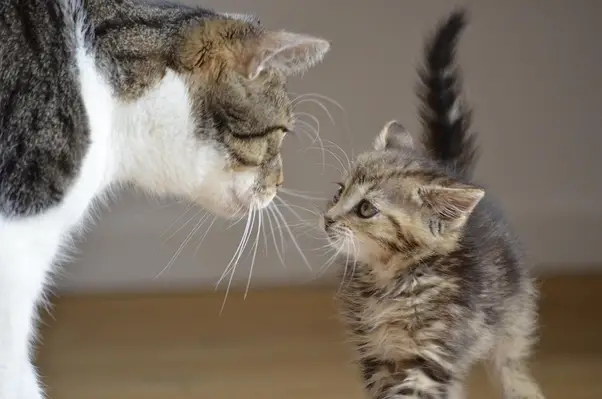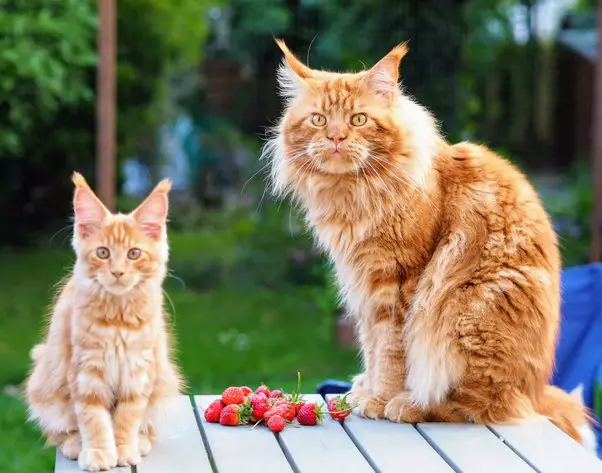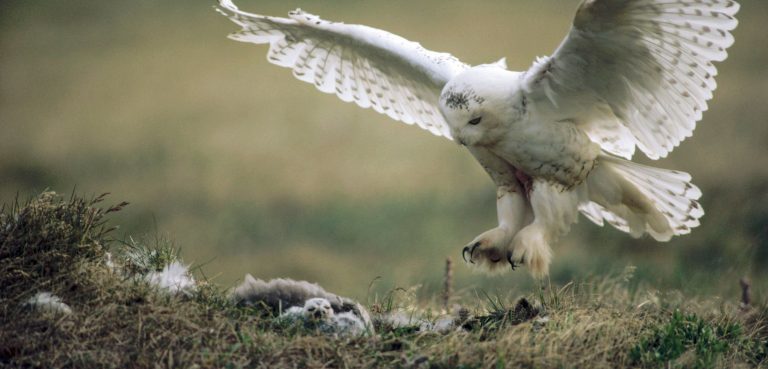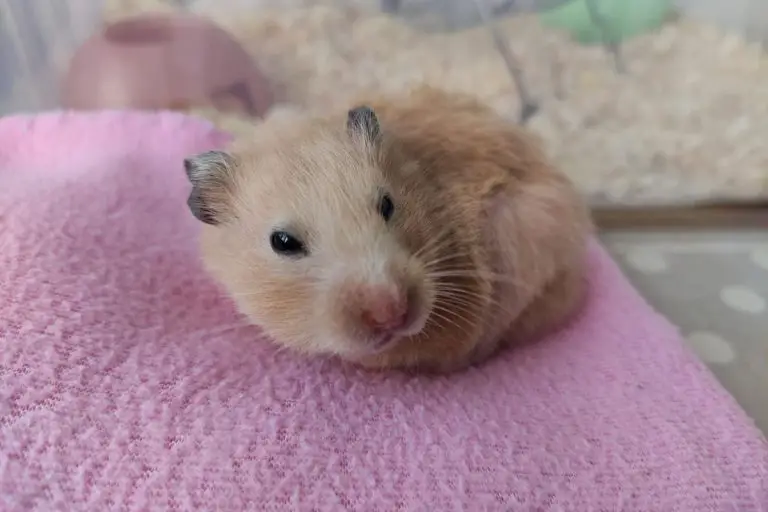Do Male Cats Recognize Their Kittens?
Male cats do recognize their kittens, forming a strong bond and displaying protective behavior towards them. That being said, there are certain factors that can influence how a male cat interacts with their offspring, such as the individual cat’s personality and the dynamics within the cat family.
Understanding the nature of this relationship can help cat owners ensure a harmonious coexistence within their feline household. So, let’s dive deeper into the truth about male cats recognizing their kittens.
Male Feline Paternal Instincts
There is often a misconception that male cats do not possess paternal instincts similar to their female counterparts. However, this popular belief is far from accurate. Male cats are indeed capable of recognizing and displaying affection towards their kittens, displaying unique paternal behaviors.
Male cats exhibit various actions that demonstrate their recognition of their offspring. They participate in grooming and cleaning their litter, aiding in their physical hygiene. Additionally, male cats engage in playful activities with their kittens, fostering a bond through shared interactions. These paternal behaviors are vital in maintaining a strong familial connection.
Interestingly, paternal instincts in male cats can also be observed in their wild counterparts. Many wild feline species show similar behaviors, such as providing protection and providing food for their young. This underscores the evolutionary significance of paternal instincts in maintaining the survival and well-being of offspring.
Feline Recognition Abilities
Understanding how cats recognize each other is an intriguing topic from a sensory perspective. Scent and sound play crucial roles in this recognition process. Cats have a highly developed sense of smell, and they use scent to identify familiar individuals, including their own kittens. The unique scent of each cat allows them to distinguish between family members and strangers.
In addition to scent, sound is another important factor in recognizing kittens. The mother cat uses vocalizations to communicate with her offspring, and kittens also emit specific sounds that help them identify each other. Through vocalizations, cats can establish and maintain a bond with their kittens, recognizing them based on their unique calls.
Scientists have conducted various experiments and observations to test the recognition abilities of male cats. These studies have provided valuable insights into how cats recognize their offspring, with results indicating that paternal recognition is indeed possible. Factors such as familiarity with the mother and exposure to the kittens from birth seem to enhance this recognition.
Male Cat Interactions With Kittens
Male cat interactions with kittens can vary, but contrary to popular belief, male cats are not usually indifferent to their young. Shared traits such as paternal genetics and kitten development play a role in fostering bonds between fathers and offspring. Male cats often assist in nesting behaviors and contribute to the care of their kittens. They may exhibit protective behaviors, guarding the young and providing grooming and warmth. It’s important to note that individual cat personalities and circumstances can affect these interactions. Some males may take longer to warm up to their kittens, while others form an immediate bond. Overall, male cats do recognize their kittens and participate in their care, dispelling the myth that they are indifferent to their young.
Emotional Bonds In Cats
Do Male Cats Form Emotional Ties with Their Offspring?
Male cats play an important role in the feline social structure and are often seen as dominant figures in the household. While they may not exhibit the same level of caregiving behavior as female cats, male cats do form emotional bonds with their offspring.
Observations of male and kitten interactions have shown that male cats indeed recognize their kittens and may display protective behaviors towards them. They may engage in grooming, playing, and even sharing resting spaces with their offspring. These actions demonstrate a sense of connection and attachment between male cats and their kittens.
Feline Social Structures and the Role of Male Cats
In feline social structures, male cats play a significant role in maintaining territorial boundaries and protecting the pride. By acknowledging their kittens, male cats contribute to the stability and cohesion of the family unit. This bonding also provides the kittens with valuable socialization and learning experiences.
Human Perception Vs. Feline Reality
Separating Fact from Fiction in Cat Parenting Myths
When discussing the topic of male cats recognizing their kittens, it is important to separate human perception from feline reality. Cats are unique creatures with their own social dynamics, and it is vital to understand their behavior without projecting our own emotions and assumptions onto them.
In the natural feline world, males may not have an active role in raising their kittens. Unlike humans, male cats are not wired to recognize their offspring based on physical or genetic similarities. Instead, their focus is on establishing territory and mating.
While male cats may not exhibit the same bonding behaviors as female cats, it doesn’t mean they are indifferent to their kittens. They may indirectly contribute to their survival by protecting the territory from potential threats. However, the recognition of kinship is not a significant factor in their behavior.
This understanding of natural feline social dynamics dispels the myth that male cats exhibit parental recognition towards their kittens. By separating fact from fiction, we can foster a more accurate understanding of feline behavior and provide better care for our furry companions.

Impact Of Neutering On Male Cat Behavior
Neutering has a significant impact on male cat behavior, particularly in terms of their recognition and interaction with their kittens. It is widely observed that male cats tend to be less interested and involved with their offspring after being neutered. This change in behavior can be attributed to the decrease in testosterone levels post-neutering.
Paternal instincts, such as grooming and protecting kittens, are often diminished in neutered male cats. They may show less inclination towards actively participating in nurturing and caring for their offspring. However, each cat may respond differently to the procedure, and some neutured males may still exhibit paternal behaviors to varying degrees.
Several case studies have been conducted to observe the behavior of male cats before and after neutering. These studies suggest that neutered male cats are generally less likely to recognize and acknowledge their kittens compared to intact males. The hormonal changes that occur due to neutering can play a significant role in shaping the behavioral changes in male cats.
In summary, neutering can impact the recognition and involvement of male cats with their kittens, leading to a decrease in paternal instincts and a potential change in their behavior towards their offspring.
Implications For Cat Breeders And Owners
The interaction between male cats and their kittens has significant implications for both cat breeders and owners. Choosing the right male cat for breeding is crucial to ensure healthy and well-adjusted kittens. Breeders should consider factors such as temperament, genetic traits, and compatibility with the female cat.
When introducing kittens to adult males, it is essential to take precautions to ensure their safety. Supervision is necessary to prevent any aggressive behavior that may harm the kittens. Gradual introductions, separating them initially, and providing a safe space for the kittens can help in achieving a positive and stress-free interaction.
Fostering healthy kitten development involves implementing best practices. Giving the male cat opportunities to interact with kittens in a controlled manner helps foster their social skills and enhances the bond between them. Ensuring proper nutrition, providing a stimulating environment, and regular veterinary check-ups are also essential for their well-being.
Frequently Asked Questions On Do Male Cats Recognize Their Kittens? The Truth!
Do Male Cats Care About Their Kittens?
Male cats do care about their kittens. They may not care for them in the same way as female cats, but they do play a role in their upbringing. They can protect, groom, and even help teach them important skills.
Will A Mother Cat Remember Her Kittens?
Yes, a mother cat will remember her kittens. Cats have strong maternal instincts and form strong bonds with their offspring. They can recognize and recall their kittens even after they have been separated for a period of time.
Do Mother Cats Get Sad When Their Kittens Are Taken Away?
Yes, mother cats can feel sad when their kittens are taken away. They form strong bonds and separation can cause emotional distress.
Can Kittens Stay With Their Mother Forever?
Kittens can’t stay with their mother forever. It’s crucial for their development to be socialized with humans and other cats. Ideally, they should stay with their mother for at least 8 weeks to learn vital skills. After that, they can be adopted into loving homes.
Conclusion
To sum it up, male cats do indeed recognize their kittens. This natural instinct allows them to establish a bond and provide care and protection to their offspring. By scent, marking territory, and displaying nurturing behaviors, male cats demonstrate their recognition and acceptance of their kittens.
Understanding this fascinating aspect of feline behavior can deepen our appreciation for the remarkable instincts that cats possess. So, rest assured that the paternal instincts in male cats are indeed genuine and play a crucial role in raising their offspring.







